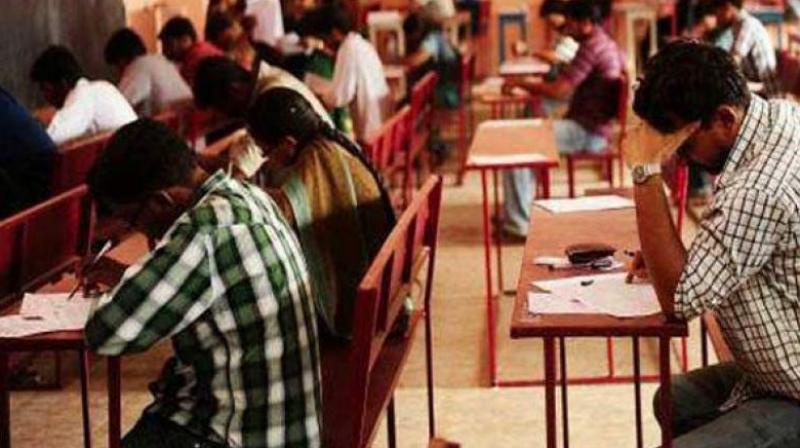Out of sync course irks students: Study
Moreover, 59 per cent of the surveyed students said they had no access to employment and career services at their institution.

Hyderabad: A study by UK-based Bournemouth University shows that 67 per cent of students in Indian universities are dissatisfied with the curriculum and academic structure at their universities.
Moreover, 59 per cent of the surveyed students said they had no access to employment and career services at their institution. Students also said there was negligible exposure to practice-based education in the existing curriculum.
Researchers at Bournemouth University worked with a range of Indian stakeholders, including IITs, IIMs, the University of Madras and Delhi University.
The study looked at the Indian Higher Education framework from the perspective of the five major educational stakeholder groups – higher education leadership, students, employers, policy-makers and NGOs.
Academic staff and higher education experts pointed to the current gap between the university curriculum and contemporary developments in the world of work; with 65 per cent of them feeling that students in India are unable to apply graduate-level skills and competencies in their work. Ninety-six per cent of the academic staff respondents felt that there is significant value in establishing international collaborations and partnerships.
Dr Sonal Minocha, the Pro Vice-Chancellor (Global Engagement) of Bournemouth University and lead author of the report, said, “Over the last three years, we have been working with a range of stakeholders from industry, academia and government to develop insight and understanding of the challenges faced in developing future ready talent, which is needed for an increasingly global world of work. Rapidly growing economies with a large youth population such as India face a set of unique challenges in attaining their potential.’’
She adds, “We found a very clear higher-level skills gap in India, which is estimated to cost the Indian economy as much as $8.61 billion in lost productivity (PwC, 2014). Our report offers preliminary findings for consideration by educators, employers and policymakers in tackling India’s graduate-level skills development challenge. Report findings sought to improve understanding of the role of Indian higher education in narrowing this gap and providing ideas for improving productivity of its workforce through higher education.”
Professor GVK Reddy, an education expert, said, “First, the curriculum at many universities is rigid and overloaded with subjects that have little or no relevance to industry practice. Second, there is a total disconnect between school education and university. Students entering university are ill prepared. Several studies have found that the quality of high school education is a key predictor of academic performance in college, not only in first year, but into senior years as well.”

